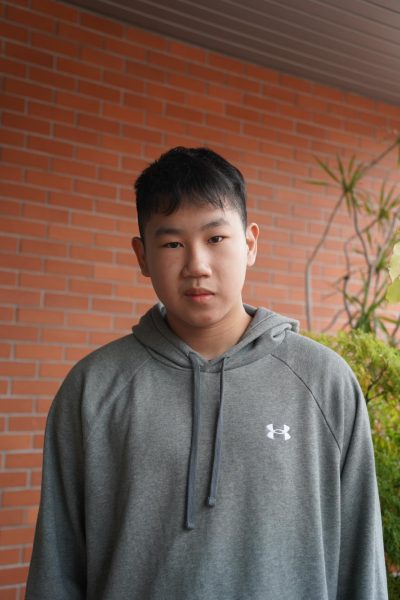The topic of honors courses at Taipei American School (TAS) is extremely controversial. While honors courses add a 0.5 GPA boost for the course, some honors courses are noted to demand significantly more time, effort and critical thinking than others. Some students may find themselves with a mountain of work due the next day for their honors course, while some students may find that they do not need to spend as much time to earn a good grade in another honors course, which leads to some arguing that the GPA boost is unfairly distributed and is a “scam.”
One example of a noticeable difference between a regular honors course and a regular course can be seen in the subject of physics. Zackary M. (‘28), a student who has taken both physics and Honors physics, says, “The difference between Honors physics and physics is that you have to learn and do most of the learning by yourself in Honors physics. And of course, the tests and quizzes and material in Honors physics is significantly harder than regular physics.”
TAS has already sought to fix the method of unbalanced honors courses by removing certain honors courses for freshmen, such as Honors English 9. The school seeks to further remove more honors courses. For example, Honors Physics and Physics would be replaced by Energy System in Science and Introduction to Science Research for the class of 2029.
However, the physics department emphasizes that “courses should be sufficiently rigorous for a student, regardless of the GPA boost,” according to Mr. Iverson, a Honors Physics teacher.
The decision to completely remove honors options for most courses for freshmen is not a good decision. The optimal learning environment for students varies widely, with some students preferring easier courses, while other students enjoy a challenging course. One alternative method that would balance the honors courses as well as provide students with a suitable learning environment would be standardization. This would require the collaboration of the department chairs, ensuring that the workload and difficulty level of each honors course would be roughly the same (such as setting 1 hour of homework for each subject every day, instead of having one subject with 2 hours of homework and another subject with barely any homework). By establishing clear guidelines and expectations for each course, students would experience a more balanced learning environment, preventing the unfair disparity between the courses.
Additionally, quarterly feedback from students would enhance the process – such as grade-wide surveys during Flex, for example. This would work by being able to accurately assess the difficulties of each course, and make changes based on the course feedback. This feedback loop would ensure that honors courses are a fair challenge for students, and the surveys would also allow for constant adaptation with each incoming year of students.
In conclusion, rather than removing honors courses entirely, TAS should focus on standardizing the difficulty and workload of the honors courses to ensure fairness. By implementing feedback and revising the difficulties of the courses to suit the students every year, the school can create a balanced and suitable learning environment for all students.

![[PHOTO COURTESY OF PIXABAY]](https://blueandgoldonline.org/wp-content/uploads/2025/04/notebook-2178656_1280-1200x800.jpeg)
![A myriad of impressive trophies and awards. [ANNABELLE HSU/THE BLUE & GOLD]](https://blueandgoldonline.org/wp-content/uploads/2025/09/Awards2-1200x512.jpeg)
![Students' calendars say goodbye to exam week. [ANNABELLE HSU/THE BLUE & GOLD]](https://blueandgoldonline.org/wp-content/uploads/2025/09/Exam-week-1200x740.jpg)
![A collection of college flags. [PHOTO COURTESY OF AMBER HU ('27)]](https://blueandgoldonline.org/wp-content/uploads/2025/05/IMG_5029-1200x577.jpeg)

![An SAT word cloud. [PHOTO COURTESY OF WORDCLOUDS]](https://blueandgoldonline.org/wp-content/uploads/2025/05/SAT.jpeg)
![Collage of banned books, including “The Handmaid’s Tale” by Margaret Atwood. [MINSUN KIM/ THE BLUE & GOLD]](https://blueandgoldonline.org/wp-content/uploads/2025/04/IMG_4274-1200x681.jpeg)
